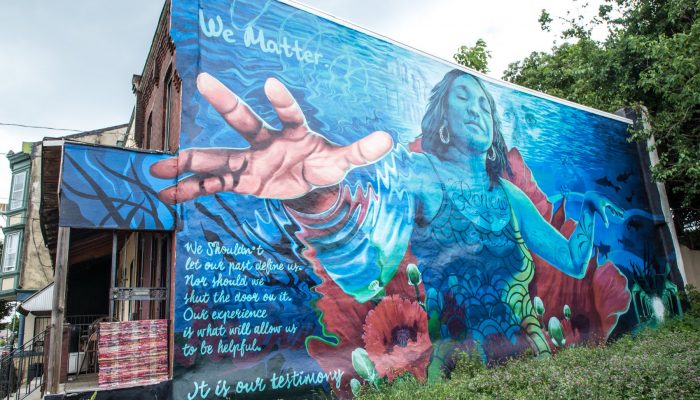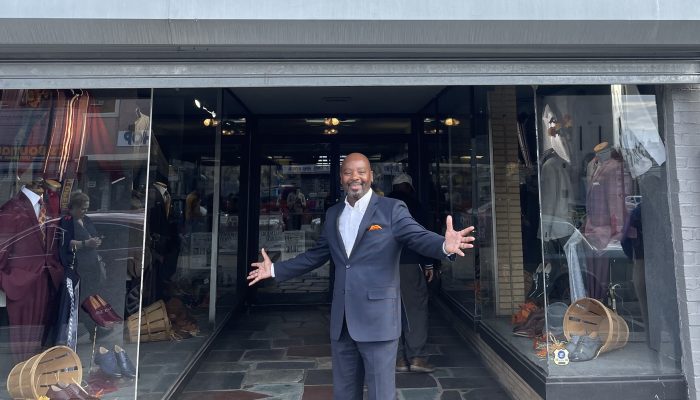The Pathways to Reform, Transform and Reconciliation, a City effort initiated in June, is part of our response to widespread activism around police brutality and race-based disparities across the city and country. This initiative is supported by a diverse Steering Committee, who have collectively worked to guide meaningful police reforms, reimagine public safety, and advance racial justice.
Through short-term, mid-term, and long-term objectives, the Committee has a commitment to building a more equitable future for all Philadelphians. In four months, the Steering Committee has met 11 times, focusing their work on four key priorities: public safety, economic recovery, community engagement, and health.
Below is the progress to date on each priority.
Progress as of October 21, 2020
Police Reform and Public Safety
In a combined effort with the Committee and Police Reform Working Group, City leaders committed to immediate action on police reform and public safety. To this effect, the City has collaborated closely with the Committee to increase accountability and equity, and to implement its Police Reform Agenda.
Since the last pathways update—provided on July 20, several developments and reforms have been made to the Philadelphia Police Department’s (PPD) policies.
- All use of force policies were reviewed against the Police Executive Research Forum report, 30 Guiding Principles on Use of Force. Edits to policy and PPD mission have been drafted by the Executive Team and are being staffed to all Commanders for additional comments or edits before final submission to Police Commissioner.
- The Use of Force policy was updated to clearly articulate that kneeling on a person’s head or neck is prohibited. This is consistent with recent legislation passed by City Council and signed by Mayor Kenney.
- The intentional pointing of a gun at an individual is now considered a Use of Force and must be recorded using the Departmental Use of Force form.
- PPD banned the use of no-knock warrants.
- PPD was revised to ensure that exculpatory information (information that would contradict a person’s involvement in a crime) is included in all search and arrest warrant affidavits submitted to magistrates for approval.
- PPD is working collaboratively with the Police Advisory Commission to evaluate the Police Board of Inquiry (PBI), to review its disciplinary process. The PAC-PPD-PBI Action Plan was signed in August 2020.
- PPD is amending the SWAT less-than-lethal standard operating procedures (SOPs) to include references to the sanctity of life and rights of peaceful protestors, consistent with overall Departmental policy. The Philadelphia Law Department has been included in reviewing these amendments.
- PPD has begun the process of implementing a Co-responder/Alternate response model with the Department of Behavioral Health and Intellectual Disabilities by embedding a mental health clinician into Police Radio 9-1-1. This first step began on September 28, 2020.
- PPD has started the hiring process and is actively recruiting for a Diversity and Inclusion Officer focused on equity and organizational excellence. The hiring process is expected to be completed in November 2020.
- PPD will train its personnel—both officers and non-sworn—on Implicit Bias, with Dr. Marks of the NITRE Center, starting the training on October 28, 2020, and will complete the entire training in the Fall of 2021.
- PPD has agreed to be an early adopter of the Active Bystander for Law Enforcement (ABLE) Program and will train all sworn personnel on how to actively and effectively intervene and de-escalate a situation to build a culture that prevents harm. PPD currently has four Academy instructors trained through the national ABLE “Train-the-trainer” session that began in September 2020.
In addition to recent updates on the Philadelphia Police Department’s use-of-force policies, the City has focused on reforms in diversity, transparency, budgeting, collective bargaining, and city and state-level legislation.
Economic Recovery
The City’s recent Pathways to Reform, Transform and Reconciliation work also includes economic recovery efforts. These efforts, in collaboration with the Inclusive Economy subcommittee, prioritize reviewing the City’s budget, investing in historically-disadvantaged communities, and supporting small businesses.
In September, the City released Respond Restart Recharge Reimagine: An Equitable and Inclusive Economic Recovery for Philadelphia. The plan included three key projects related to addressing historic disparities and inclusive economic recovery—the Regional Recharge and Recovery Taskforce, the Equitable Entrepreneurship Assessment and Strategy, and the Workforce Respond and Recharge Plan. The City also released a $1 million Call For Ideas, seeking workforce innovations to help unemployed and underemployed Philadelphians prepare for and connect to sustainable, living-wage careers.
Over the summer, the City, in partnership with The Merchants Fund, distributed more than $1.5 million in grants to 186 businesses as part of the City’s Restore and Reopen program. The program provided grants to small, independently-owned businesses that suffered property damage, vandalism, or inventory losses during the recent civil unrest—with a focus on those in historically disadvantaged communities. More information can be found in this recent report.
Community Engagement
City offices and local nonprofits have worked together to thoughtfully engage with the community in addressing actions around reconciliation, public safety, and police reform. On September 2, the City’s Millennial Advisory Committee hosted a virtual town hall pertaining to police reform and racial justice. The Office of Community Empowerment and Opportunity also held a virtual panel on September 14 focused on racial healing, reform and reconciliation. On October 8, the Office of Faith-Based and Interfaith Affairs hosted the first session of “Law, Order, & God,” a multi-part engagement focusing on faith and public safety with members of Vine Memorial Baptist Church. The series will continue in November. Faith-Based and Interfaith Affairs will repeat the series with other congregations in early 2021.
The Community Engagement subcommittee will partner with City offices and local organizations to support the Philadelphia Police Department in ensuring community engagement and education around completed policies. With a goal of strengthening relationships with communities through transparency and accountability, the PPD is planning to engage residents using surveys, town halls and other public outreach.
In addition, the subcommittee is in the process of supporting robust engagement for a public landmark and monument review with the City’s Chief Cultural Officer.
Public Health
In late July, the Philadelphia Department of Public Health (PDPH) released an interim plan to address the racial inequities posed by the COVID-19 coronavirus pandemic. The plan is divided into eight areas of concern, and each section acknowledges existing disparities in the community, highlights what the City and Department of Public Health are currently doing to address those disparities, and plans for further addressing them.
Additionally, PDPH has convened a Vaccine Advisory Committee in order to implement intentional strategies to plan for a COVID-19 vaccine distribution with an equity lens.




